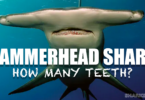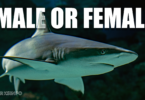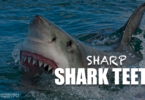The majority of shark species feed on invertebrates, but one wonders whether sharks are themselves vertebrates or invertebrates. We know, as a matter of fact, that sharks do not have bones, but they are all made of the cartilaginous skeleton, a strong, malleable connective tissue that shields your joints and bones. Pertaining to this, how will you classify the sharks?
Well, for that, you must understand the difference and what makes an animal a vertebrate or invertebrate. Let’s get directly to that first.
What are Vertebrates and Invertebrates?
Vertebrates: In animal biology, a vertebrate is a creature with a backbone and a skeleton. It refers particularly to animals with a spine. Amphibians, birds, turtles, and reptiles are all examples of vertebrate animal species.
Invertebrates: Animals lacking a backbone are entitled as invertebrates. Invertebrates do not possess or develop vertebral columns; in fact, they have no bones at all. Worms, insects, spiders, centipedes, and mollusks are all examples of invertebrate animal species.
Knowing the definition and basic differences of each, it will be easy to identify in which category the sharks belong. But wait, we must know a bit about shark class as well, and if they have a vertebral column or not, only then can we classify sharks as vertebrates or invertebrates.
Shark Class
The shark belongs to the class of fish called Chondrichthyes, which includes all fish with cartilage skeletons. So it turns out sharks do have skeletons but are made from cartilage. With this specification, can we say sharks are vertebrates? Let’s find out.
Are sharks vertebrates or invertebrates?
Sharks, by all means, fall into the category of vertebrate animals. As members of the Vertebrata class, they are part of a subphylum that includes five different types of species: amphibians, birds, fish, mammals, and reptiles.
Sharks are classified as members of Phylum Chordata and Subphylum Vertebrata, which means they have vertebrae, notochords, and spinal cords. Sharks have two cylindrical cartilage segments that make up their spinal column. The neural arches are found in the upper cartilage portion, while the notochord is located in the lower cartilage portion.
How are sharks vertebrates?
Well, a good question to ask is when you have in mind that sharks do not have bones. In spite of not having bones, sharks are considered vertebrates. Their vertebral column consists of cartilaginous tissues rather than bone, and it acts in a similar manner as bones. The cartilage in sharks is more flexible than bone, making them fast swimmers that are able to maneuver quickly.
With cartilage, the shark’s mouth can open much wider than it would with bone, resulting in greater bite force. Another benefit is that it helps sharks maintain buoyancy.
If during some event cartilage is replaced with bones, we wouldn’t be able to recognize the shark we know today. In contrast to the bone, cartilage is not so strong, so it provides less protection. However, sharks have developed a thicker skin to compensate.
Role of shark’s vertebrae
Shark vertebrae, just like those on other vertebrates, are primarily responsible for protecting the spinal cord and internal organs. Furthermore, it provides support and balance to the body as well as allows flexibility in movement. Also, the shark’s vertebra assists them in propelling itself through the water.
Conclusion
Anatomically, sharks lack bones and replace their bony skeletons with cartilaginous structures that provide buoyancy and flexibility. Ultimately, we discovered sharks are vertebrates that lie in the cartilaginous fish category. In no manner can you say that sharks are invertebrates.







